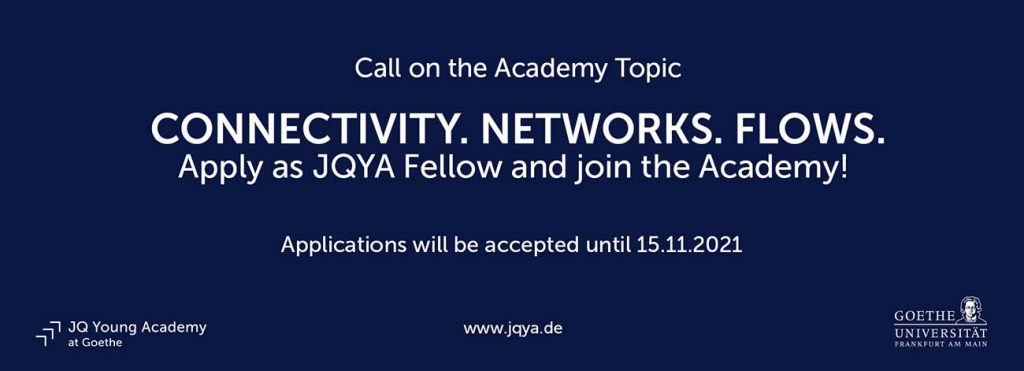The Johanna Quandt Young Academy (JQYA) is an independent academy within Goethe University, which supports outstanding scientists at the beginning of their independent careers. The JQYA intends to inspire researchers with already established international reputations to join the academy. It provides freedom for academic research as well as diverse opportunities to develop and contour a unique, independent scientific profile in a global context.
Each year, the JQYA defines a new research topic for the academy program. For 2022, the JQYA has chosen the topic ‘Connectivity. Networks. Flows.’ to address current issues in sciences, arts, and humanities. Our new topic opens the door to an interdisciplinary exchange highlighting the following scientific concepts:
- The parameters and elements of connectivity, i.e. the capability of being connective or connected, which is one of the key principles in a wide array of natural, social, and technological systems.
- The structure and function of networks, i.e. systems consisting of many similar parts that are connected to enable movement or circular communication between or along them or with a control centre.
- The emergence and relevance of flows, i.e. the continuous and easy movement, which creates unique trajectories.
CALL
We invite applications of early career researchers from Goethe University, the RMU Alliance, and partner institutions, who are interested in the academy topic “Connectivity. Networks. Flows.”, and who would like to join our interdisciplinary debates.
Applications will be accepted until 15.11.2021
Visit https://www.jqya.de/ for more information.









